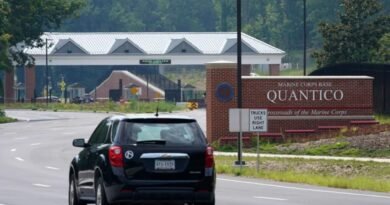The referendum in Puerto Rico for statehood was a strategy to gain Democratic representation in Congress

During President-elect Donald Trump’s campaign rally at Madison Square Garden two weeks ago, comedian Tony Hinchcliffe made a controversial joke referring to Puerto Rico as a “floating island of garbage.”
This comment was quickly seized upon by Democrats as evidence of racism against Puerto Ricans, with the press running extensive coverage on the incident.
However, the real controversy involving Puerto Rico was the Democrats’ own actions.
In 2022, House Democrats passed the Puerto Rico Status Act, which proposed a referendum on statehood that notably did not include the option of remaining a commonwealth.
Governor Pedro Pierluisi adopted the House bill as the basis for a nonbinding referendum held on the island last week, where the statehood option won 56.9% of the vote after the other options were excluded.
Despite the pro-statehood party declaring victory, many on the island viewed the results as flawed.
Resident Commissioner Pablo José Hernández Rivera, Puerto Rico’s newly elected representative with a nonvoting seat in the House of Representatives, did not acknowledge the validity of the referendum due to the exclusion of the option to maintain and improve the Commonwealth status.
Other major political parties on the island instructed their members to boycott the vote. As a result, over 165,000 Puerto Ricans left their ballots blank and nearly 13,000 damaged them in protest. Adjusting for these ballots, the support for statehood dropped to 47.6%.
The Democrats’ motive behind this manipulation was evident – they aim to make Puerto Rico a state to gain Democratic seats in Congress and the Electoral College.
House Democrats are trying to create a pro-statehood consensus to justify making Puerto Rico the 51st state in the future, should they control both Houses of Congress and the White House.
The main obstacle to this plan, aside from Republican opposition, is the will of the Puerto Rican people who have voted to remain a commonwealth in the past.
This time, Democrats removed the commonwealth option from the ballot to ensure statehood’s victory.
Proponents of remaining a commonwealth fear that Puerto Rico’s cultural identity, including its use of the Spanish language, would be at risk if it became a state.
Those in favor of statehood argue that the island would benefit economically from statehood’s privileges, such as voting rights, congressional representation, and federal welfare benefits.
Instead of persuading through traditional means, Democrats have resorted to eliminating competition to push their agenda.
Justification for this scheme is often framed as “decolonization,” claiming that maintaining the current commonwealth is colonial. The media has uncritically accepted the statehood victory, with Democrats supporting the “decolonization” narrative.
The Department of Justice has made it clear that referendums must offer all available options, including remaining a Commonwealth.
The DOJ objected to anti-commonwealth bills introduced in 2021, emphasizing the importance of presenting all choices to Puerto Ricans.
Last week’s referendum was based on the Puerto Rico Status Act introduced by Raúl Grijalva in 2022.
Puerto Ricans, as demonstrated by Trump’s support in Puerto Rican communities, can tolerate humor but not underhanded attempts to change their island’s status without consent.
This article was contributed by Coleman Hughes, a writer at The Free Press.



